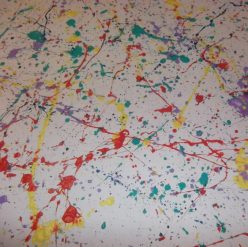ComAlt, Sarah Williams.
Seminar Response Paper, wk 5
Zoe Wright
Tompkins Chapter 3, Newman Chapter 5, Selections of LaDuke.
“We return again, as well, to the ways that the language of food allows for the exploration of the fine line between animal and human: here, however, the line has a particularly racist connotation, as Haley attaches Eliza’s body to the category of animal – and, of course, not just any animal but a dead animal slaughtered for human consumption.” (Tompkins, 105)
“Compared with the polished robber barons of the midwestern grain machine, the merchants who dealt in produce were more likely to be newly arrived immigrants, struggling to build a family business.” (Newman, 65
“This was an enforced famine, the result of British policy. Wheat harvests flourished in Ireland during the famine, but the British harvested and exported these crops to feed their people in their colonial conquests worldwide. Had the Irish been able to access this food source, the numbers who died from hunger would have been far fewer.” (Laduke, 90)
“As interest in medical cannabis has increased, the terms “organic” and “sustainably grown” have become trendy buzzwords within the industry. There is obviously a need to propagate more cannabis to supply a large consumer demand, but the “more for your money” approach to growing has not been conducive to healthy stewardship of the land. Our corporate-dominated agricultural system is broken, and the cannabis industry should not emulate its worst features.” (Russo, 2016)
I am noticing that I the lines I choose from Tompkins book often have to do with the distinction and discussion of animals and humans and their value. I think this is because I can recognize and place these lines in context of my own experience, while much of the rest of Tompkins work sits in a kind of vacuum. I am learning from it, but there is no preexisting framework in my mind to facilitate that learning. I chose these lines in particular because of the connection between being considered an animal and racist connotations of being considered an animal, or less than a person. This has a lot of connections, from voting politics of the one third of a person law, to the treatment of slaves as property, to the association of savage, ‘lower or less civilized’ humans with being wild or feral animals.
In Newman’s quote, I liked the note about which areas of food were run by which types of people, because if there is such a difference in what kind of people are in what positions, it is good to know why. In this case it is that the egg market is less stable than the grain market, so people with means stay away from eggs, while people without means do what they can with what’s available to them.
I chose the lines from LaDuke to quote because it connected to my knowledge of colonialism and capitalism, and it made a connection in my mind to the book The Sea of Poppies (About the poppy trade between Britain, India, and China) by Amitav Ghosh because it was describing a colonizing country forcing its subject to produce a certain crop at the expense of their ability to gain food.
I chose this article because I was looking for something about monocropping, as it was discussed in LaDuke around potatoes, and I thought it would be a timely and connected subject. I chose this article because it amused me that it was discussing marijuana in terms of sustainability in production, and because it interested me that it was already being discussed in terms of sustainability even though it seems like the demand for this crop is relatively new.
Referenced article:
Russo, S. (2016, May 6). Marijuana, Not Monoculture: How to Make Your Pot Crop Sustainable. AlterNet. Retrieved from http://www.alternet.org/drugs/marijuana-not-monoculture-how-make-pot-crop-sustainable
